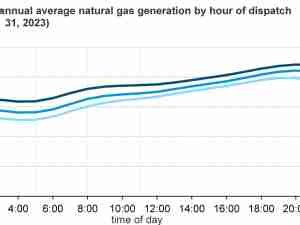Germany’s coordinator for transatlantic relations called for a temporary halt to the construction of the Nord Stream 2 gas link to Russia to give Chancellor Angela Merkel’s government time to work on resetting ties with the U.S.
Peter Beyer, a member of Merkel’s Christian Democratic Union, said the nearly completed pipeline in the Baltic Sea is a “roadblock” in relations between Berlin and Washington. The project is subject to U.S. sanctions and a long-running source of friction between the two North Atlantic Treaty Organization allies.
“It’s not enough to just reject extra-territorial sanctions,” Beyer said Thursday in an interview with Bloomberg News. “If we hope for a new start in transatlantic relations, we need to change our own position,” he said, adding that Germany and the U.S. should hold further discussions to try to resolve the issue.
Beyer’s stance on the pipeline does not reflect the official line of Merkel’s ruling coalition, though other CDU lawmakers have also called for a moratorium on the project.
Merkel’s government has rejected U.S. calls to stop the Gazprom PJSC-led pipeline, arguing that sanctions imposed by the administration of former President Donald Trump compromise national and European sovereignty.
The U.S. says Nord Stream 2 increases Russia’s leverage over Europe’s energy market, and has sanctioned vessels, insurers and certifiers of the project, forcing several international companies to end their participation.
The new administration under Joe Biden is weighing additional sanctions, potentially including the project’s parent company Nord Stream 2 AG, three people familiar with the matter told Bloomberg last month.
The sanctions could come in the form of an interim report that may also single out an insurance company that has been working with the vessels laying the pipeline, as well as other companies providing support vessels and materials, according to the people, who asked not to be identified because of the sensitive nature of the deliberations.
U.S. Secretary of State Antony Blinken last week suggested that options for stopping Nord Stream 2 are limited but that differences over the project shouldn’t burden relations with Germany.








